
The invasion by Russia of Ukraine is unjust and unjustifiable. It’s logical for other governments to try to cut off the money for the Russian regime, by stopping buying Russian products including coal. The UK government has announced that it will stop buying Russian coal and oil by the end of this year and Russian gas “as soon as possible thereafter”. The European Union’s timetable is faster – no Russian coal to be bought after mid August 2022. Prior to this conflict Russia supplied around 40% of the coal consumed in European power stations and steel works.
Proponents of the proposed Whitehaven coking coal mine, are calling for the Rusisan invasion to be used to justify extracting more coal in the UK.
Update: the decision on Whitehaven by Michael Gove is now due on or before the 8th December 2022.
There has been a delay in making this decision by an additional delay of a month. This isn't the first delay to this decision, nor the first time Michael Gove, as Secretary for State for Housing Communities and Local Government, has had the power to stop this application. As he held the role in the summer before Liz Truss briefly came to power.
Several years ago West Cumbria Mining Ltd, backed by an Australian company, EMR Capital, applied to extract coal from a new underground coking coal mine under the sea by Whitehaven, Cumbria. After a legal challenge the company is seeking to extract 2.78 million tonnes of coal a year until 2049. The Secretary for State for Housing Communities and Local Government said that the UK government would decide whether this application should be allowed to go ahead which lead to a planning inquiry in September 2021. The Planning Inspector had written his report and made his recommendation by Spring 2022. The Inspectors report will be made public when Gove announces his decision.
Previously Gove’s department has said that a decision on this application will be given on or before the 17th August 2022 after the original date of 7th July 2022 was going to be missed.
West Cumbrian Mining Ltd (WCM), the company behind the application say that if this coal were extracted 83% of the coal would be sold abroad. Only 13% of this coal is expected to be used by UK steelworks (it is coking coal, a purer coal than that normally used in power stations). On the company’s website and at the planning hearing WCM focussed on extracting coal in Cumbria and displacing coal imported to the UK from the USA, not Russia.
There are now some calls from long term proponents of the mine such as Mike Starkie, the Conservative mayor of Copeland, the constituency that includes Whitehaven, to approve this application on the basis of the Russian invasion. Others have suggest allowing the extension application at Abepergwm in order to stop the UK’s use of Russian coal. However no-one who previously thought coal at either site should stay in the ground has been convinced by this argument. The rational is misleading and counterproductive as shown in this brilliant article by Ukrainian climate activist Svitlana Romanko.
Svitlana writes, "we Ukrainians have a clear response to the fossil fuel industry and the politicians on its payroll: Do not use the pain and suffering of our people to double down on [fossil fuel] production, while deploying a “peace-washing” rhetoric that makes it seem as if you are, in fact, helping the world free itself from Russian tyranny. Fossil fuels themselves, like the missiles they finance, are weapons of mass destruction."
Comparably increasing coal production in the UK won’t impact whether or not coal is mined in Russia. There are several countries still buying large amounts of Russian coal. However, decarbonisation of the two primary steel producers – Port Talbot Steel works and Scunthorpe steelworks - will reduce coal demand significantly and reduce emissions, while keeping most steel workers in their jobs.
 Additionally and crucially, the British Steel industry isn’t behind the Whitehaven proposal either:
Additionally and crucially, the British Steel industry isn’t behind the Whitehaven proposal either:
Chris McDonald, chief executive of the Materials Processing Institute and chair of the UK Metals Council said, “I think it’s important to be clear that even if this mine opened tomorrow, it would not displace a single tonne of Russian coking coal from the UK – and I can say that with confidence”. Tata Steel already does not use any Russian coking coal. British Steel have said they can’t use the coal from Cumbria because the sulphur levels are too high. So there’s no possibility that a new mine can meaningfully displace any Russian imports.
While the end of Russian coal imports to the UK and Europe is something Coal Action Network and others have been campaigning for, we grieve for the way in which it has come about.
While the UK government may wish to hide its bad decision making behind world events, justifying a new coal mine because of Russia’s invasion of Ukraine doesn’t add up. COP26 agreements need to be honoured and coal at Whitehaven needs to stay where it is – underground.
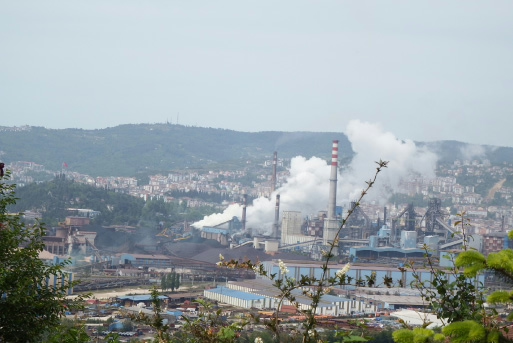
Kömür Eylem Ağı (Coal Action Network), 2024 yılında Türkiye kömür endüstrisini araştırdı. Bu makalede, bulgularımız ve Türkiye’deki kömür, hava kirliliği, Rusya savaşı ile karbonsuzlaştırma arasındaki ilişkiler inceleniyor.

Last December in London, the CAN team protested with other climate campaigners for two days in freezing temperatures outside one of the world’s biggest events funnelling investment into expanding mining globally. The ‘Mines and Money Conference’ held in London’s Business Design Centre connected investors with projects and companies responsible for human rights abuses, ecocide, and fuelling climate chaos…
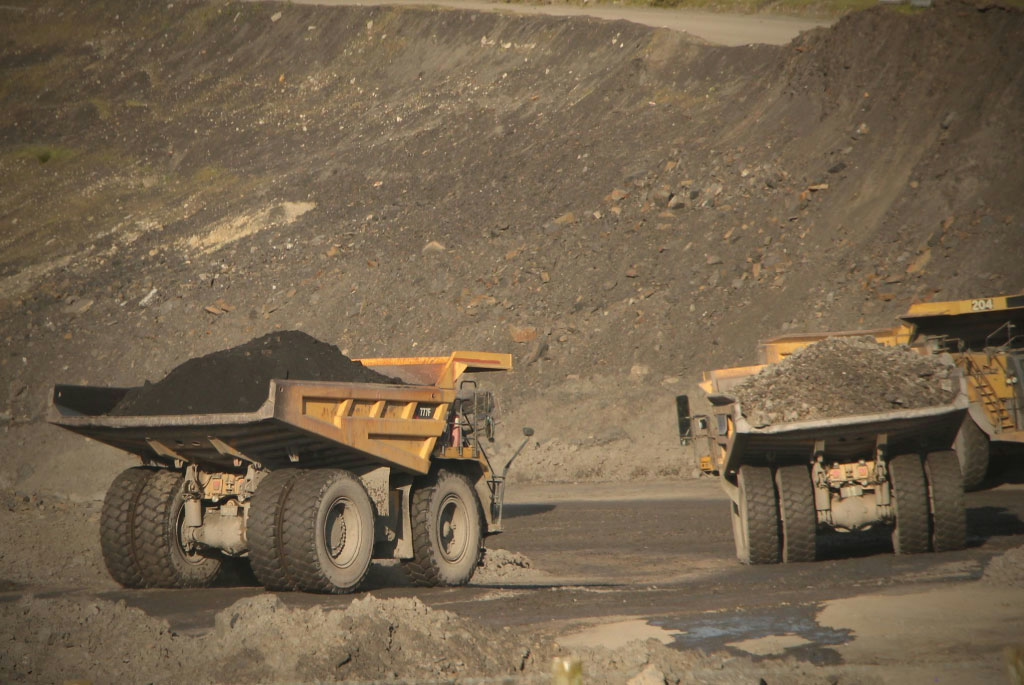
The UK Government has laid a Written Ministerial Statement confirming that it will introduce legislation to “restrict the future licensing of new coal mines”, by amending the Coal Industry Act 1994, “when Parliamentary time allows”. The UK Government’s press release is entitled “New coal mining licences will be banned”. Here at Coal Action Network, we thinks it’s great that the UK Government is following…

(Türkçe olarak mevcuttur) Coal Action Network investigated the Turkish coal industry in 2024. This article looks at our findings and the links between Turkish coal, air pollution, Russia’s war and decarbonisation.

Former steelworker, Pat Carr, spoke to Anne Harris from Coal Action Network about the financial support offered to workers when the Consett steelworks closed in 1980, and they discussed what can be done better, in workplaces like Scunthorpe steelworks. (Article published in Canary magazine)
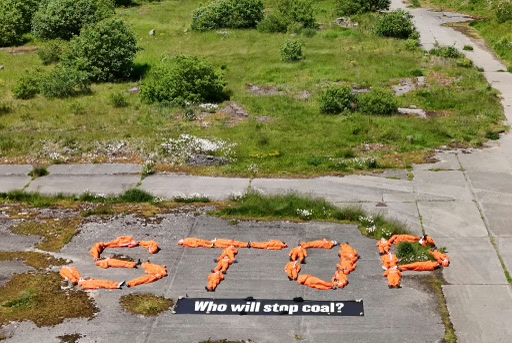
The proposed West Cumbria Coal mine lost its planning permission in September 2024. Since then its application to get a full coal mining license was refused by the Coal Authority, another nail in the coffin of the proposed coking coal mine.
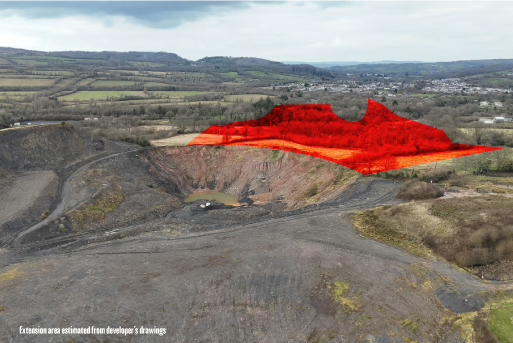
Bryn Bach Coal Ltd is the coal mining company that operates the Glan Lash opencast coal mine, which has been dormant since planning permission expired in 2019. In 2018, it applied for an extension which was unanimously rejected by planning councillors in 2023. Undeterred, Bryn Bach Coal Ltd is trying again! This time with a slightly smaller extension of some 85,000 tonnes rather than 95,000 tonnes…

Former steelworker, Pat Carr, speaks to Anne Harris from Coal Action Network about the financial support offered to workers when the Consett steelworks closed in 1980.
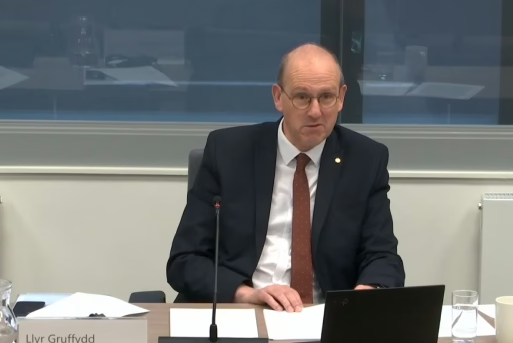
In May 2023, Coal Action Network wrote to the Climate Change, Energy, and Infrastructure Committee (CCEIC) of the Welsh Senedd, informing the Committee of the ongoing illegal coal mining at Ffos-y-fran in Merthyr Tydfil, and the Council and Welsh Government’s refusal to use their enforcement powers to prevent the daily extraction of over 1,000 tonnes of coal…